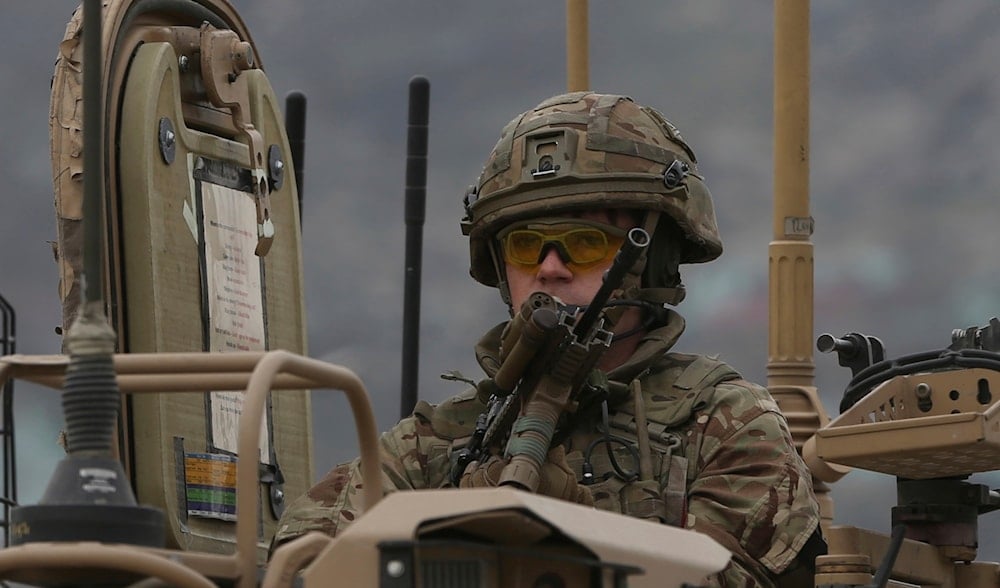British army weapons could cause brain damage in soldiers: Expert
Thousands of British soldiers may suffer from Traumatic Brain Injury (TBI) due to repeated exposure to blast waves from their own weapons. Experts and the MoD are investigating the long-term neurological effects.
-

A British soldier with NATO-led Resolute Support Mission forces arrives at the site of an attack in Kabul, Afghanistan, Wednesday, March 25, 2020 (AP)
Thousands of British soldiers may be suffering from Traumatic Brain Injury (TBI) as a result of repeated exposure to blast-related brain damage caused by their own weapons systems, according to an investigation by ITV News.
The Ministry of Defense’s leading expert on TBI confirmed that low-level blasts in military environments, generated by certain weapons used by British forces, can harm the brain and result in lifelong neurological issues.
Lieutenant Colonel James Mitchell, a specialist in TBI, explained that earlier deployments in Iraq and Afghanistan attributed most cases of brain trauma to large explosions and enemy fire. However, recent findings indicate that the weapons used by British soldiers themselves are causing unseen harm.
“Over especially the last five to ten years, we're starting to appreciate the role of what we call low-level blasts,” Mitchell told ITV News.
These low-level blasts result from blast over-pressure, a shockwave produced by weapons like mortars, shoulder-launched anti-tank systems, .50 calibre rifles, machine guns, and explosive charges.
Low-level blasts, hidden dangers
Such blasts cause sudden spikes in atmospheric pressure that can penetrate the skull and disrupt blood vessels and neurons, potentially overwhelming the brain’s ability to heal. The cumulative effect of this damage can lead to serious long-term brain conditions.
Mitchell emphasized that while exact numbers are not yet available, “thousands” of serving soldiers may have been impacted. The number could be even higher among veterans.
Overlapping symptoms with PTSD complicate diagnosis
A significant challenge is that PTSD and TBI symptoms often overlap, making diagnosis difficult. Signs of blast-related TBI include:
- Persistent headaches
- Visual disturbances
- Sensitivity to light and sound
- Memory issues
- Personality changes
These shared symptoms mean many cases may go unrecognized or be misdiagnosed as purely psychological trauma.
Thousands potentially affected, including veterans
The effects of the weapons' health risks are not limited to currently serving soldiers. Veterans who were repeatedly exposed to such weapon systems during their service may also suffer from undetected TBI, making long-term care and monitoring essential.
To better understand the scope of the issue, researchers across the UK are now collaborating with the MoD to investigate brain injury among military personnel.
At the forefront of this effort is the University of Birmingham, which is partnering with the MoD to study mild TBI and assess the damage in both active soldiers and veterans.
Professor Lisa Hill, a neuroscientist involved in the research, explained that the brain releases biomarkers, chemical signals, when injured. By detecting these markers in blood or saliva, researchers hope to identify the extent of injury and predict future symptoms.
“If somebody gets injured, it changes the structure and function of the brain, but it also releases chemicals that you wouldn’t normally see,” Hill said. “So if we can measure things in blood or in their saliva, that can tell us how potentially bad their injury has been and what symptoms they might go on to get.”
Read more: Over 10,000 UK armed forces members not medically deployable: MoD

 3 Min Read
3 Min Read










